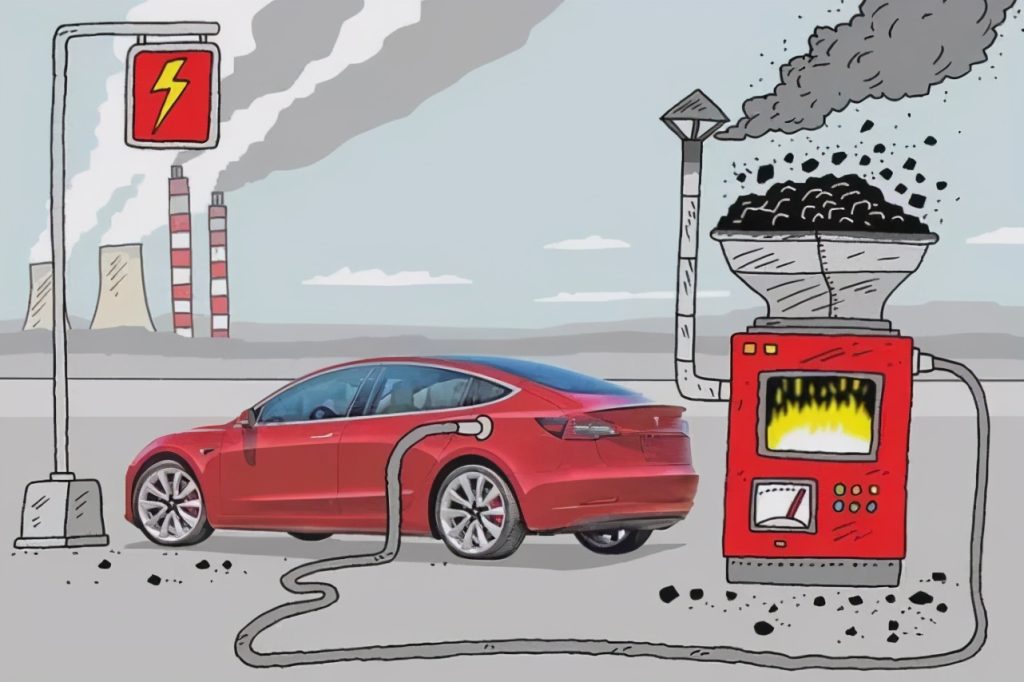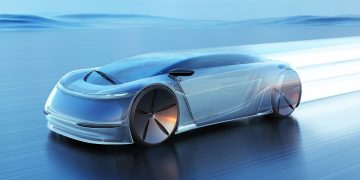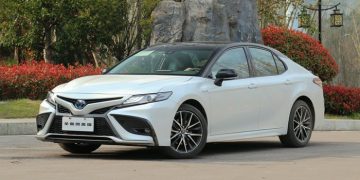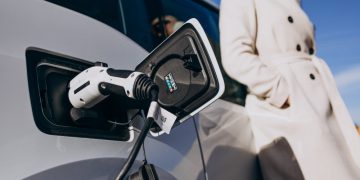Introduction: The Global Shift Toward Electric Vehicles
The transportation sector is one of the largest contributors to global carbon emissions, making it a key area of focus for governments and environmental organizations worldwide. In response to the growing urgency of addressing climate change, governments are increasingly implementing stricter environmental regulations that favor electric vehicles (EVs) over traditional gasoline-powered cars. These regulations are designed to reduce greenhouse gas emissions, improve air quality, and mitigate the environmental impact of transportation.
The question arises: will these environmental regulations lead to the rapid phase-out of traditional gasoline-powered vehicles (internal combustion engine vehicles, or ICEVs)? As electric vehicles (EVs) become more affordable and accessible, and governments implement more aggressive regulatory measures, the traditional automobile industry is facing significant disruption. This article explores how environmental regulations on EVs may accelerate the transition from gasoline vehicles to electric vehicles, examining the policies, their impact on automakers, and the potential timeline for phasing out ICEVs.
Section 1: The Role of Environmental Regulations in Promoting Electric Vehicles
Environmental regulations are a central tool used by governments to encourage the adoption of electric vehicles. These regulations primarily target reducing carbon emissions, improving air quality, and increasing energy efficiency within the transportation sector. Below, we examine the types of regulations being implemented globally that favor EV adoption and how they are likely to influence the future of gasoline-powered cars.
1.1 Emissions Standards: Pushing Automakers Toward Zero-Emission Vehicles
One of the most effective ways in which governments have accelerated the shift to electric vehicles is through the imposition of stricter emissions standards for gasoline-powered vehicles. These regulations aim to reduce the amount of carbon dioxide (CO2), nitrogen oxide (NOx), particulate matter, and other harmful pollutants emitted by traditional combustion engine vehicles.
For example, the European Union has established some of the world’s most stringent emissions standards, pushing automakers to meet specific CO2 reduction targets. By 2030, the EU aims to cut CO2 emissions from new cars by 37.5% compared to 2021 levels. These regulations are designed to significantly reduce the carbon footprint of the automotive industry and encourage the production of electric vehicles. The tightening of emissions regulations in many parts of the world is a direct challenge to the future viability of gasoline-powered cars, as manufacturers are forced to focus more on EVs to meet these goals.
1.2 Zero-Emission Vehicle (ZEV) Mandates: Shaping Automaker Strategy
Governments are also introducing Zero-Emission Vehicle (ZEV) mandates, which require automakers to sell a certain percentage of zero-emission vehicles (including EVs) within a specified period. California, one of the leading states in the U.S. for EV adoption, has set a target that 100% of new car sales will be electric by 2035. Other countries, including the United Kingdom, France, and Norway, have announced plans to ban the sale of new gasoline and diesel vehicles in the next two decades. These regulatory measures incentivize automakers to transition their production lines toward electric vehicles, and they are expected to accelerate the decline of gasoline-powered vehicles as automakers adjust their offerings to comply with these mandates.
1.3 Carbon Pricing and Taxation: Economic Incentives for EV Adoption
In addition to regulatory measures on emissions, governments are introducing carbon pricing systems and taxes aimed at making gasoline-powered vehicles more expensive to own and operate. For example, carbon taxes impose a cost on the carbon emissions produced by fossil fuel consumption. In countries like Sweden and Canada, these taxes have made gasoline-powered vehicles more costly to operate, thus providing a financial incentive for consumers to switch to cleaner alternatives like electric vehicles.
Similarly, road taxes for internal combustion engine vehicles are often higher than those for electric vehicles, further discouraging the ownership of gasoline-powered cars. These tax policies not only encourage consumers to adopt EVs but also create a financial burden for automakers who continue to produce gasoline-powered vehicles. This economic pressure is likely to push more automakers to accelerate their transition to electric vehicle production.
Section 2: Global Policy Trends and Their Impact on Traditional Gasoline Vehicles
The pace at which traditional gasoline vehicles will be phased out is largely influenced by the regulatory environment in different regions. Various countries and regions are adopting different approaches to EV policies, and their respective timelines for banning gasoline vehicles vary. These policies, along with increasing consumer demand for EVs, are likely to determine the future of gasoline-powered cars.
2.1 The European Union: Paving the Way for EVs
The European Union has taken a bold approach to phasing out gasoline vehicles through its comprehensive Green Deal and ambitious climate targets. By 2035, the EU plans to achieve a significant reduction in emissions, with policies that make it increasingly difficult for automakers to sell gasoline-powered vehicles. The EU has set binding emission reduction targets for new cars, requiring that automakers meet zero-emission standards by this date.
In addition to emission standards, the EU is investing in EV charging infrastructure, making electric vehicles more viable for consumers. With a high level of regulatory support and growing environmental awareness among European consumers, the transition from gasoline to electric vehicles is expected to be one of the fastest in the world. By introducing these stringent regulations, the EU is positioning itself as a leader in the global EV race, making it clear that gasoline-powered cars will soon be obsolete.
2.2 China: Leading the Global EV Revolution
China, the world’s largest automobile market, is another region where environmental regulations are dramatically changing the competitive landscape for gasoline-powered vehicles. The Chinese government has provided significant financial incentives to encourage EV adoption, including subsidies for consumers and tax breaks for manufacturers. Additionally, China has established strict emission standards and a growing number of cities with policies that restrict the use of gasoline-powered vehicles in certain areas.
The Chinese government is also investing heavily in EV infrastructure, including charging stations, to make EV ownership more practical. China’s regulatory framework for EVs is one of the most comprehensive in the world, which has driven both domestic and international automakers to increase their focus on electric vehicle production. As a result, the market share of gasoline-powered vehicles in China is expected to shrink over the next decade, as EVs become more dominant.
2.3 United States: A Mixed Regulatory Landscape
The regulatory environment in the United States is more complex, with varying policies at the federal and state levels. At the federal level, the U.S. has implemented tax credits for electric vehicle purchases, but the overall regulatory framework for EV adoption is less aggressive compared to Europe and China. However, certain states, such as California, have taken the lead in introducing stricter emissions standards and implementing ZEV mandates. California’s regulations have historically driven much of the innovation in the U.S. automotive market, and the state’s ambitious EV targets for 2035 are expected to influence the rest of the country.
The federal government’s stance on EVs is evolving, and with the Biden administration’s focus on climate action, there is growing support for policies that will accelerate the transition to electric vehicles. However, the United States is not likely to see the same rapid phase-out of gasoline vehicles as countries like Norway or the UK, given the more fragmented nature of policies across different states.

Section 3: The Economic and Social Impacts of Phasing Out Gasoline Vehicles
While environmental regulations are pushing the automotive industry toward electric vehicles, the transition will have significant economic and social impacts, particularly in regions heavily reliant on gasoline-powered vehicle production and consumption.
3.1 Economic Implications for the Automotive Industry
For automakers, the transition from gasoline-powered vehicles to electric vehicles presents both challenges and opportunities. Traditional automakers must invest heavily in EV production facilities, battery technology, and supply chains to remain competitive. While this shift may lead to job losses in certain sectors related to gasoline-powered vehicle production, it also creates new job opportunities in EV manufacturing, battery production, and charging infrastructure.
Moreover, governments that introduce policies to phase out gasoline vehicles must consider the economic impact on consumers. In regions where gasoline vehicles are still deeply entrenched, there may be resistance to switching to electric vehicles due to concerns over cost, infrastructure, and range anxiety. Governments will need to support the transition by ensuring that EVs are affordable and that charging infrastructure is readily available.
3.2 Social Implications and Consumer Behavior
The transition from gasoline vehicles to electric vehicles is not just an economic issue; it also has significant social implications. For many consumers, especially in developing regions, the cost of electric vehicles remains a barrier. To support widespread EV adoption, governments will need to implement policies that reduce the upfront cost of EVs and ensure that consumers are educated about the benefits of switching to electric transportation.
Additionally, in areas where gasoline vehicles are still seen as a status symbol or a symbol of freedom, there may be resistance to the transition. Governments will need to work with automakers and other stakeholders to build consumer trust in EVs and ensure that consumers are confident in making the switch.
Conclusion: Accelerating the Phase-Out of Gasoline Vehicles
Environmental regulations play a crucial role in accelerating the phase-out of traditional gasoline-powered vehicles. As governments around the world implement stricter emission standards, offer financial incentives for EV adoption, and develop infrastructure to support electric vehicles, the transition to cleaner transportation is inevitable. However, the speed and extent of this transition will vary depending on regional policies, economic conditions, and consumer behavior.
While gasoline-powered vehicles are not likely to disappear overnight, the combination of regulatory pressure, technological innovation, and shifting consumer preferences will significantly reduce their market share over the coming decades. In regions with strong environmental regulations, such as Europe and China, the phase-out of gasoline vehicles will occur more rapidly, while other regions may experience a more gradual shift. Ultimately, environmental regulations are paving the way for a cleaner, more sustainable future in transportation, one where electric vehicles will become the dominant mode of transportation worldwide.











































